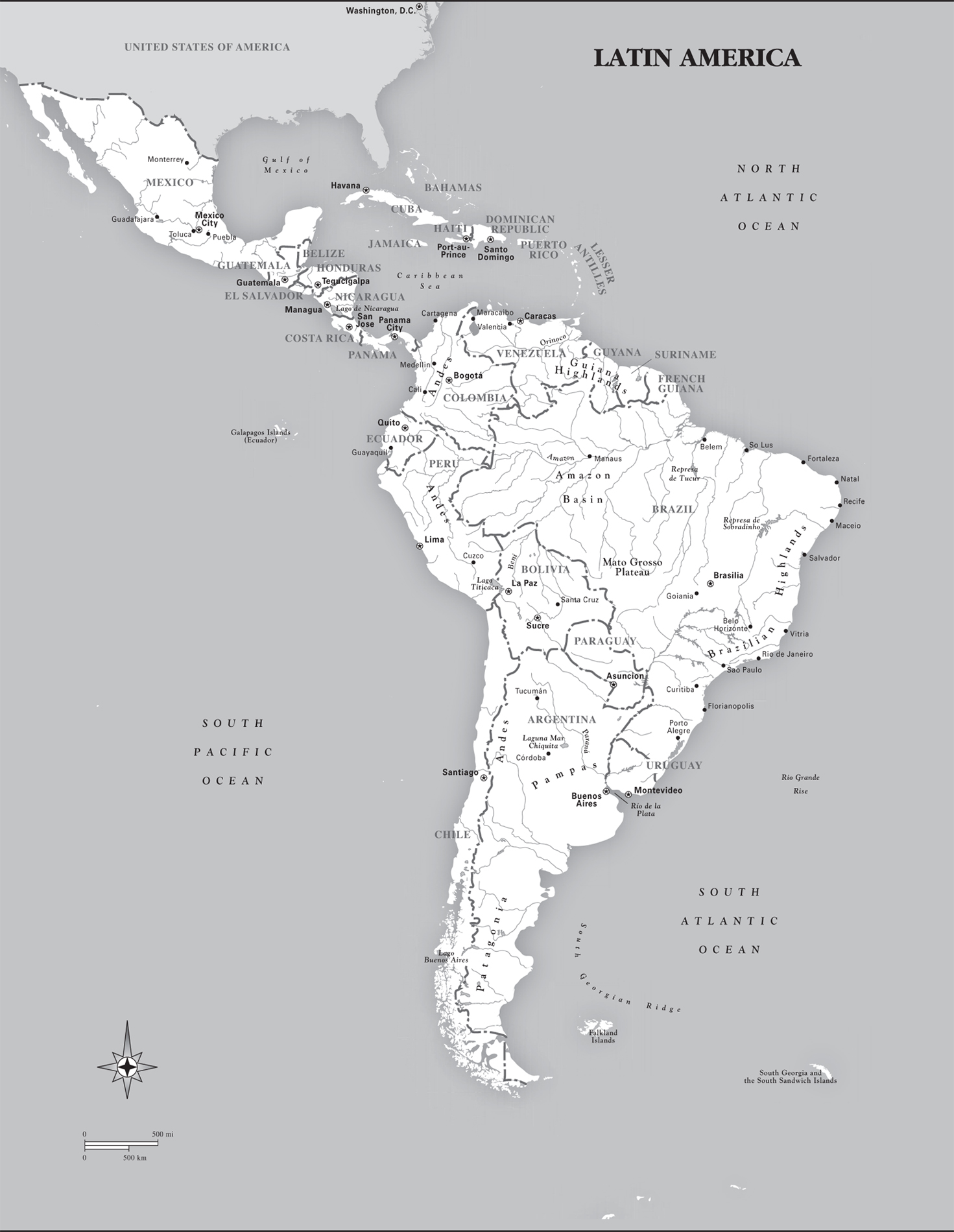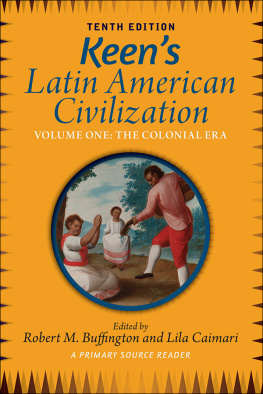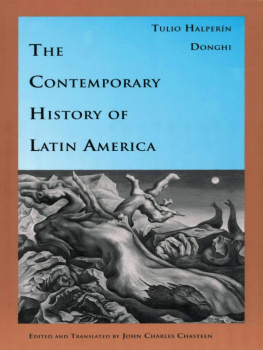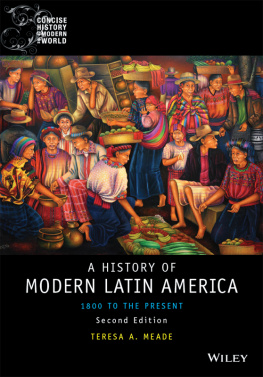

Westview Press was founded in 1975 in Boulder, Colorado, by notable publisher and intellectual Fred Praeger. Westview Press continues to publish scholarly titles and high-quality undergraduate- and graduate-level textbooks in core social science disciplines. With books developed, written, and edited with the needs of serious nonfiction readers, professors, and students in mind, Westview Press honors its long history of publishing books that matter.
Copyright 2016 by Westview Press
Published by Westview Press,
A Member of the Perseus Books Group
2465 Central Avenue
Boulder, CO 80301
www.westviewpress.com
All rights reserved. Printed in the United States of America. No part of this book may be reproduced in any manner whatsoever without written permission except in the case of brief quotations embodied in critical articles and reviews.
Every effort has been made to secure required permissions for all text, images, maps, and other art reprinted in this volume.
Westview Press books are available at special discounts for bulk purchases in the United States by corporations, institutions, and other organizations. For more information, please contact the Special Markets Department at the Perseus Books Group, 2300 Chestnut Street, Suite 200, Philadelphia, PA 19103, or call (800) 810-4145, ext. 5000, or e-mail .
Designed by Trish Wilkinson and Jack Lenzo
Library of Congress Cataloging-in-Publication Data
Keens Latin American civilization: primary source reader / edited by Robert Buffington, University of Colorado at Boulder, Lila Caimari, Universidad de San Andrs, Buenos Aires. Tenth edition.
2 volumes cm
Includes bibliographical references and index.
Contents: Volume 1. The colonial era Volume 2. The modern era.
ISBN 978-0-8133-4892-6 (v. 2: e-book)
1. Latin AmericaCivilization. 2. SpainColoniesAmericaHistory. 3. Latin AmericaHistory. I. Buffington, Robert, 1952 II. Caimari, Lila M., 1962 III. Keen, Benjamin, 1913
F1408.3.L274 2015
980dc23
2014047541
10 9 8 7 6 5 4 3 2 1
CONTENTS




This tenth edition of Keens Latin American Civilization responds to numerous requests from teachers and reviewers for a two-volume text that better fits the way most of us teach the undergraduate Latin American history survey: in two semester-length courses, one devoted to the colonial period and another to the modern era. There were also requests that we update some of Benjamin Keens introductions to reflect changes in the way historians talk about certain concepts and that some of the cultural overgeneralizations be toned down. We have tried to do this as unobtrusively as possible, so as not to deaden Keens lively, accessible style, which we suspect is one reason for the books continued success. Again in response to repeated requests, we have amplified information about the origins of sources, and have noted authorial biases wherever possible, especially where those biases were not self-evident. This should make it easier for readers, especially students, to evaluate the reliability and relevance of the various sources.
One benefit of dividing the book into two volumes is that we had more space for new additions to the modern period sources, which made it possible to honor several of the reviewers requests, especially in the sections about the most recent periods. One of the main decisions was to divide what was previously Chapter 16 into two new chapters ( in this edition), allowing for a more careful and focused treatment of the last decades of the twentieth century. As a result, we were able to include selections on subjects as crucial as the Cuban Revolution, the rise of neoliberalism, drug wars in Colombia, human-rights abuses in Central America, and the 1980s expansion of civil society in the Southern Cone.
Reviewers also asked that we include materials representing points of view other than that of progressive voices, especially in the coverage of more recent economic and political issues. In order to address this request, which we consider not only fair but quite useful for pro-con teaching exercises, we paired previous documents criticizing neoliberalism with two othersone written by neoliberal economists justifying their reforms in Pinochets Chile, and another from the Inter-American Development Bank describing the course of such reforms in the whole region the 1990s. In a similar spirit, as a counterbalance to previous selections reflecting the empowerment of Indian voices in Andean countries of the last decade, we added a text by Mario Vargas Llosa criticizing pro-Indian racism.
Addressing the need for a more diverse thematic range, we added readings on private life and popular culture to the more homogeneous economic and political chapters. Thus, for example, this edition includes an exchange of love letters between Simn Bolvar and Manuela Saenz (: Gilberto Freyres analysis of mulatto football in Brazil, and Salvador Novos description of popular entertainment on a Sunday afternoon in Mexico City in the 1940s.
In order to remain faithful to the primary source nature of the selections, we replaced Pedro Calmons after-the-fact account of post-abolition and urban modernization in Brazil with firsthand documents on the same issues: a newspaper manifesto by abolitionist Jose do Patrocnio, Prefect Pereira Passoss blueprint for urban reform in Rio, and a chronicle of those same reforms by an American traveler.
Finally, the last chapters have been updated to reflect recent directions in Latin American politics and society. New selections include an analysis of the Latin American Left, a human-rights report on the Mexican drug war, a document reflecting legislation on sexual rights in Brazil, a speech by Hugo Chvez against US imperialism, and an International Court of Justice ruling on US intervention in Nicaragua.
As always, we had lots of help with this book. A special thank you to our Westview editor, Kelli Fillingim. Without her enthusiasm, encouragement, and patience, this book might never have seen the light of day. Thanks as well to our production editor, Cisca Schreefel, and copyeditor, Karl Yambert, who saw us through the final stages with meticulous work and good cheer. Thanks also to Richard Shindell for his help in translating and editing several of the new selections. And last but never least, the editors would like to express their deep appreciation to the eight anonymous readers provided by Westview Press. Their excellent suggestions have been invaluable as we strive to make this latest edition of Keens Latin American Civilization even better than its predecessors!
Robert M. Buffington
University of Colorado Boulder
Lila Caimari
CONICET/Universidad de San
Andrs, Buenos Aires



Many factors combined to cause the Latin American wars of independence. The discontent of the Creole class with Spanish restrictions on its economic and political activity, the influence of French and English liberal doctrines of political liberty and social equality, the powerful example of the American and French revolutions, and foreign interest in the liquidation of the Spanish Empire in the Americasall played a part in producing the great upheaval.
Next page











